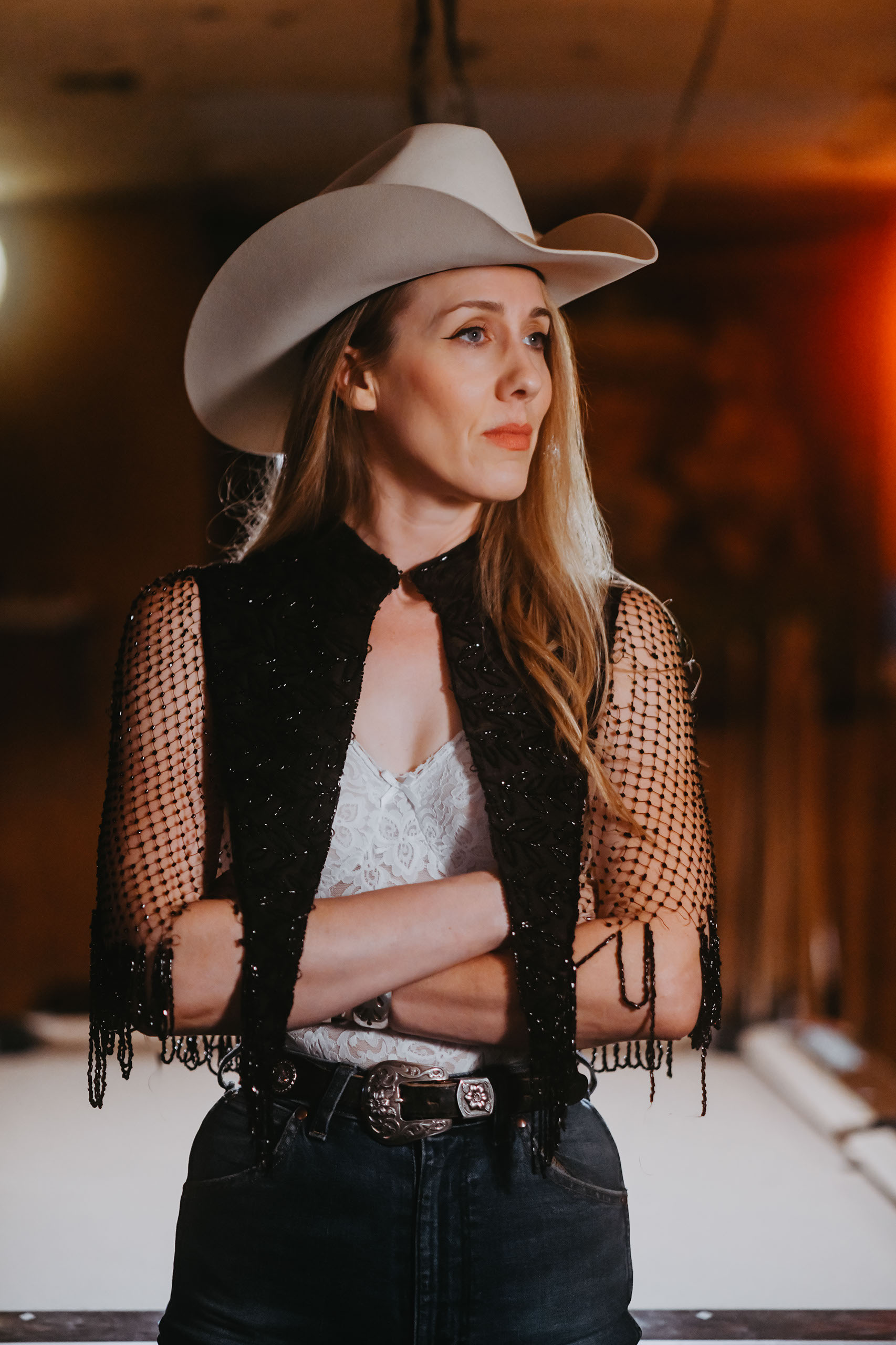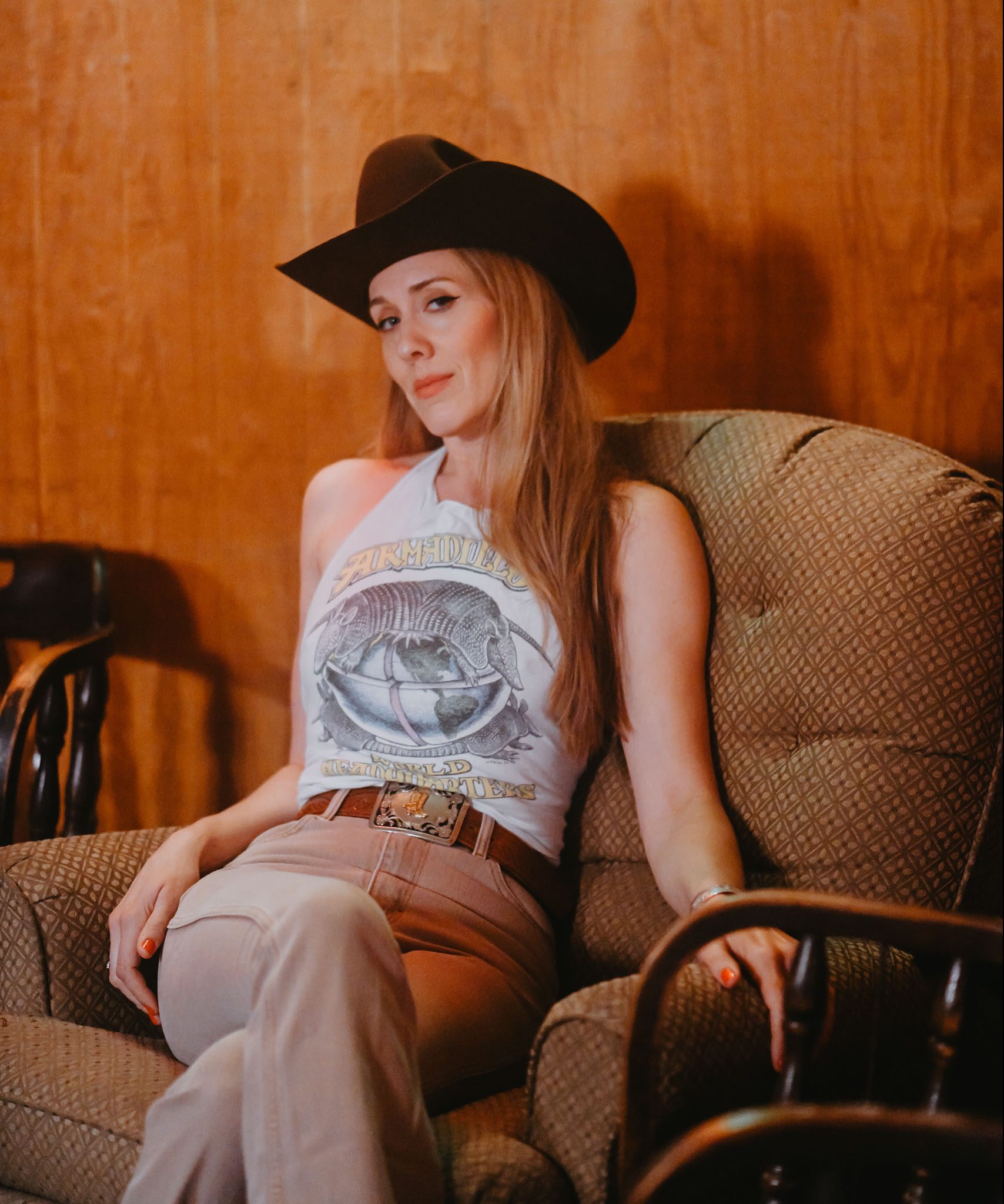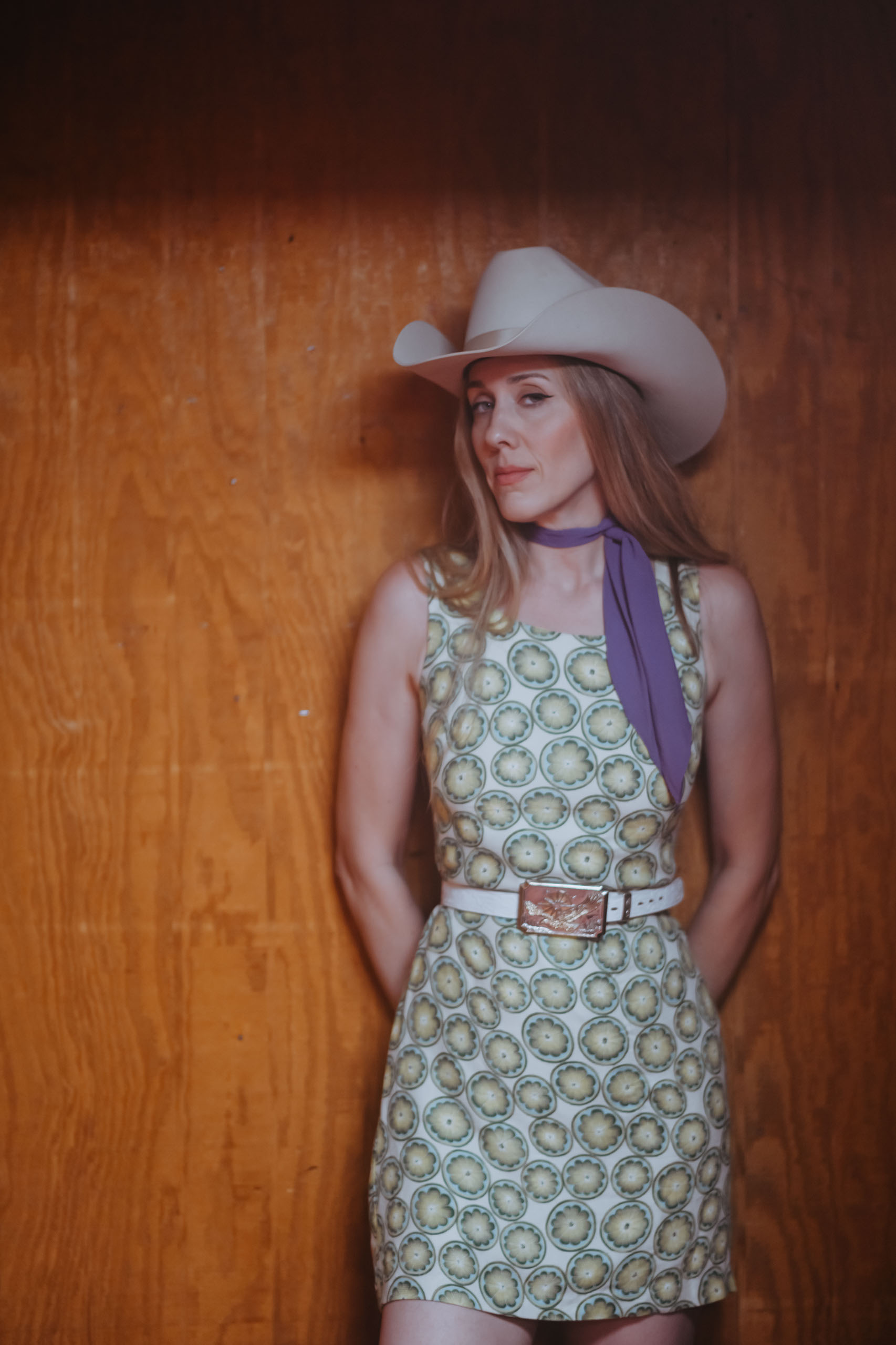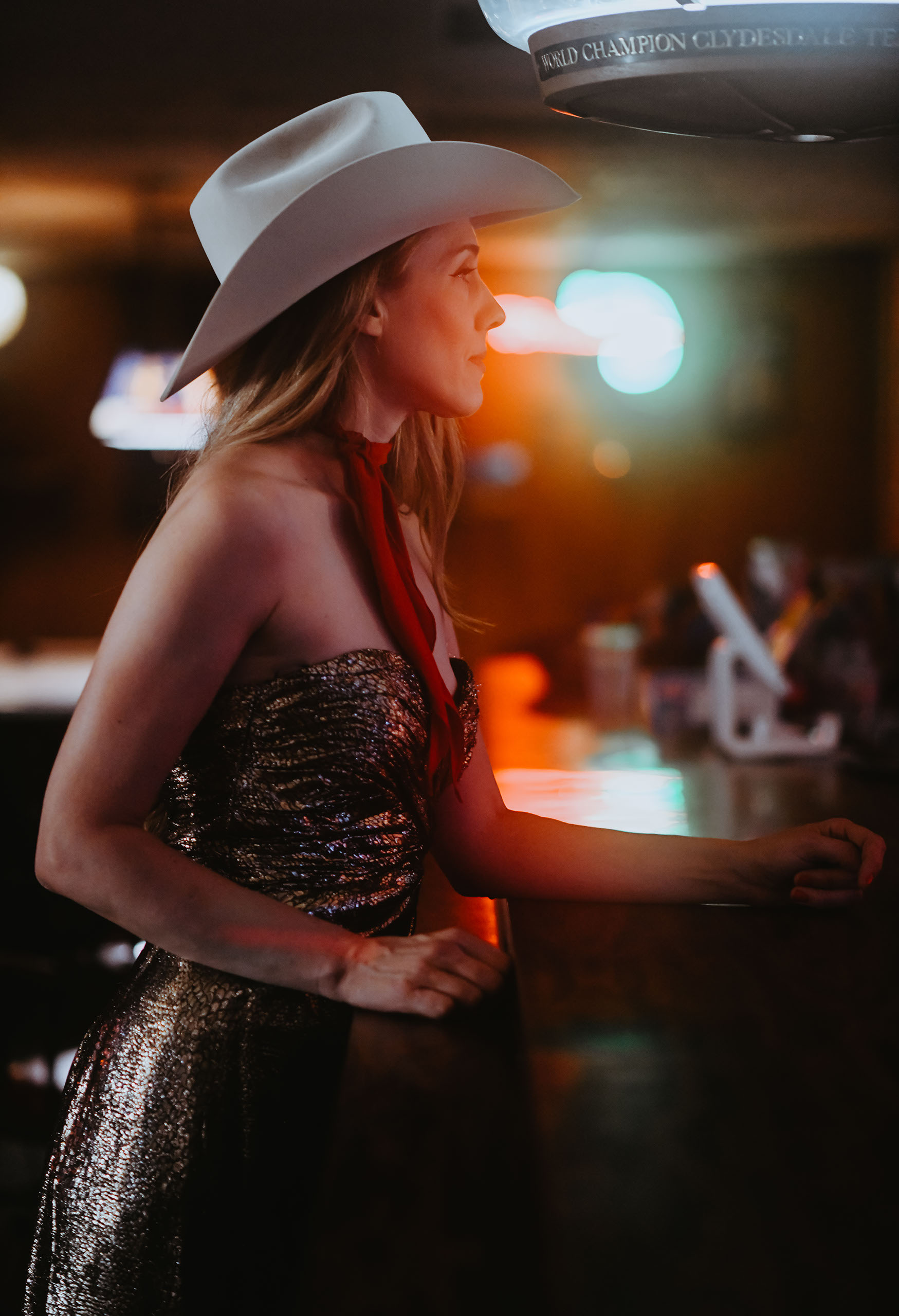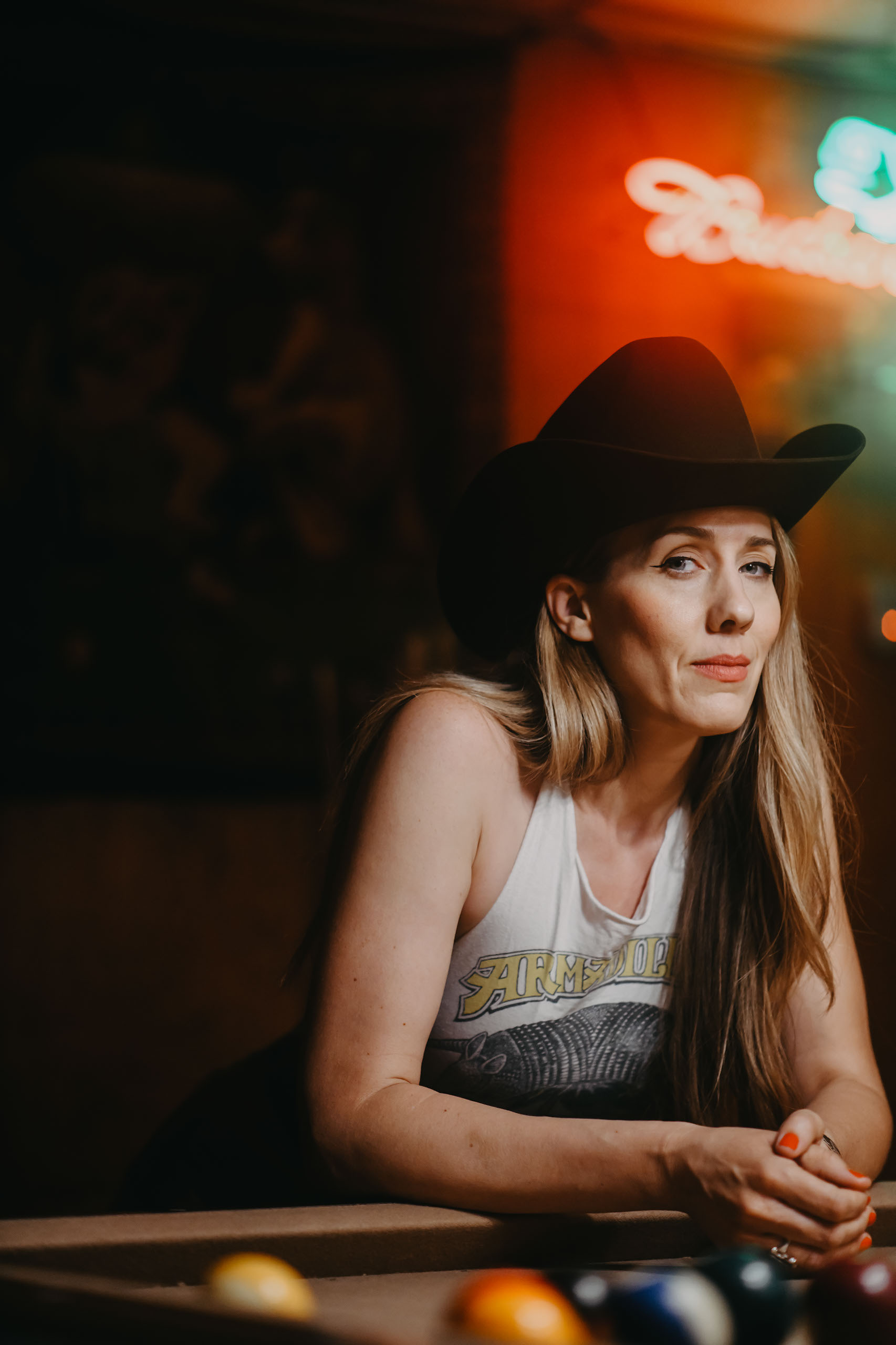Pulling from the poetic lyricism of Johnny Cash and William Shakespeare, country artist Brennen Leigh bares it all in new album Ain't Through Honky Tonkin' Yet.
It’s often said the music is just poetry set to melody, but on Ain’t Through Honky Tonkin’ Yet Brennen Leigh instead merges music and theatre to create modern day tales of triumph and tragedy with — you guessed it — a honky-tonk flair.
Born in North Dakota and raised in Minnesota, the Nashville-based artist who for 15 years called Austin, Texas, home says her parents had her consuming country music from a young age. They’d sing her songs like Johnny Cash’s “The Wreck Of The Old 97,” The Carter Family’s “Wildwood Flower,” and anything by Don Williams in addition to sporting a massive record collection that included choice cuts from Emmylou Harris and Asleep At The Wheel, the latter a group Leigh would collaborate with on 2022’s Obsessed With The West.
Equally as important to shaping her has been poetry. Leigh considers Irish wordsmith William Butler Yeats and William Shakespeare as influences just as much as Cash and the Carter Family due to how they all weave words and storylines together. Her collective influences eventually pushed her to pursue a musical career as a sibling act with her brother in high school; they studied on week nights and gigged on weekends.
“At first it seemed like this extinct profession that was reserved for Victorians, but it's really not that far of a jump from William Blake to Hank Williams when you think about it,” Leigh tells Cowboys & Indians.
The Shakespearian country sound of Leigh is on full blast from the start of Ain’t Through Honky Tonkin’ Yet on “Running Out Of Hope, Arkansas.” Inspired by the highway exit to the small town, the Silas Lowe co-write tells the story of someone feeling stuck, weaving word play and recalling her own experiences of escaping Fargo (which she later wrote all of 2020’s Prairie Love Letter about) into one. However, rather than tackling them directly, she masks the experiences in the story of a girl stuck ringing up customers for diesel, cigarettes, and Mountain Dew at a gas station (“They’re heading on to Dallas or Memphis, Tennessee / I’ve never been past Little Rock and I’m damn near 33”) in the hamlet of Hope while her prospects for a brighter future grow ever bleak. It’s that meshing of the two that truly accelerate Leigh’s storytelling and give her a style all her own.
“People often wonder if something’s not autobiographical, then how authentic are you,” says Leigh. “Part of being a songwriter is making up stories. There’s more than a shred of truth in everything I write, but it’s always got some stretches in it too. I don’t ever want to let the truth get in the way of a good song.”
Another extravagant caricature comes later with “Carole With An E”. The hard-driving diesel-billy ditty about co-writer Mallory Eagle’s long haul truckin’ neighbor and 5’3” highway queen Carole incorporates her way of living life on her own terms (“In pearls and kitten heels she’ll slam that hammer down on 18 wheels”) just as much as Leigh's and Eagle’s own time driving around in pursuit of their honky tonk dreams. The resulting song turns Carole's story into an idea for how to move through the world unshackled from any set expectation or standard, which is exactly what Leigh does with her music.
“[Carole] has become a sort of philosophy now too,” says Leigh. “A lot of truck culture is very male dominated. Carole knows that, but doesn’t let it stop her from doing her own thing. She’s very much a symbol of empowerment. That’s also why someone like Kay Adams is so incredible, because a lot of her career was made off of trucker tunes.”
Perhaps the only topic more synonymous with country music than trucker songs are ones about alcohol, another lyrical area which Leigh executes to perfection. One of her favorite things to write about, she tackles it from the POV of a codependent drunk blaming others for their problem on “Somebody’s Drinking About You” (“I’ll never drink enough to undo this / I don’t know how I let you drive me to this”) before evolving into a more belligerent, blaming tone on “The Bar Should Say Thanks” (“Before me it was just a quiet place / a couple of guys crying along with Hank / Now it’s the happenin’ place to be / and it’s all because of me”). No matter which angle she approaches it from, Leigh manages to tackle the classic country music trope in a way that’s as therapeutic as it is funny.
“I just love alcoholic denial,” says Leigh. “It’s a topic used all the way back to the beginning of country music. It’s self-soothing in a way because you’re a wrecking ball to everyone around you. The mental gymnastics it takes to keep drinking by convincing yourself it's a good thing after you’ve already taken it too far can be comical.”
Trying to convince yourself that something bad is actually good also sits at the center of “The Red Flags You Were Waving,” a foreshadowing tale about being in a vulnerable state and neglecting someone’s warning signs in hopes they’re a mirage and not reality (“Like a moth to flame I set my aim / on the red flags you were flying”). According to Leigh she wrote the song several years before work on Ain’t Through Honky Tonkin’ Yet began, with the time in between seeing her own life turning into what the song had previously depicted.
After navigating through those tough times Leigh later escapes and reclaims her identity, a journey documented in the album’s closing track, “You Turned Into A Dragon.” The co-write with Noel McKay sees her break away from those red flags, ultimately getting a dragon tattoo as a means of taking power back over that period of her life and forever reminding her of the beast who deceived and mistreated her (“And when my hair has turned to gray / and my skin is old and sagging / I’ll have a faded tattoo that looked like you / but turned into a dragon”). For that reason Leigh has long viewed the two songs as one in the same.
“I’ve always thought of it and ‘Red Flags’ as sister songs,” says Leigh. “Both could be about the same person, someone who’s insidious and pursued a weak person when they were most vulnerable. Everyone is flawed and has poor judgment sometimes, so [‘Dragon’] is also a self indictment of sorts.”
Through its pitfalls and proudest moments, Ain’t Through Honky Tonkin’ Yet stands out as Leigh’s most honest and inspiring set of songs to date. On its 12 tracks the storyteller spins epics everyone from the Carter Family to Shakespeare would applaud, turning self doubt and insecurities into strength in the process. That newfound brawn has not only elevated her music, but her relationships at home and on the road as well.
“When I started doing that I became less afraid because I realized that honesty was attracting people I really liked,” says Leigh. “Now when I talk with people after shows I genuinely enjoy it. You couldn’t be away from home and in a different location every night if there wasn’t an abundance of very generous, kind and big-hearted people who love the music. They’ve been a real asset.”
You can check out the music of Brennen Leigh through Spotify and Apple Music.








